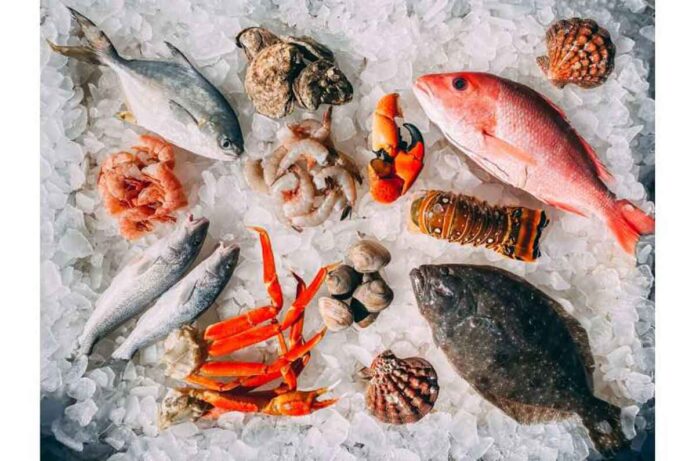According to a Communications Earth & Environment article published online, sustainable seafood could offer more nutrition to people than beef, pork, and chicken while lowering greenhouse gas emissions. The results imply that policies to encourage the consumption of seafood as a replacement for other animal proteins may enhance future food security and contribute to the fight against climate change.
To keep up with expanding population sizes, human diets must become more nutrient-dense while lowering their climate footprint. It is well known that seafood is a good source of protein, fatty acids, vitamins, and minerals, and earlier studies have shown the potential environmental advantages of substituting seafood for meat in diets. However, strategies to reduce climate emissions from future diets typically advocate “green” diets based on plants and ignore the potential of “blue” diets based on seafood.
2015 saw an analysis by Peter Tyedmers, Elinor Hallström, and associates of the nutrient density and climate effects of globally significant wild-caught and farmed seafood sources from a wide variety of fishery and aquaculture sources. They discovered that the foods with the lowest climate impacts in relation to their nutritional value were farmed mussels and oysters, as well as wild-caught salmon, herring, mackerel, and anchovies. In comparison to beef, pork, and chicken, half of the seafood species studied had higher nutrient densities and produced fewer greenhouse gases.
The effects of each species on the climate were found to vary greatly depending on differences in production and harvesting practises. The authors propose that in order to further reduce emissions, the fishing industry should adopt fuel-efficient fishing techniques and replenish depleted stocks, while aquaculture should increase the production of unfed fish and shellfish and look for more environmentally friendly sources of fish feed.
The results highlight the potential for seafood to provide a sustainable source of nutrient-rich food that benefits the climate, even though this research focuses on greenhouse emissions rather than potential impacts on ecosystems. According to the authors, sustainable seafood consumption should be encouraged by policies that aim to combat both poor diet and climate change.

